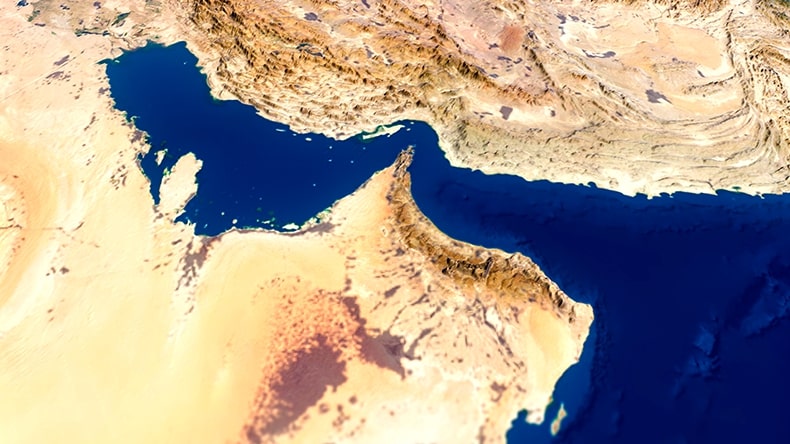The Iranian parliament has approved closing the Strait of Hormuz to naval traffic following strikes by the United States (US) on the country’s three nuclear facilities. About one-fifth of the world’s total oil consumption passes through this strait.
Iran’s parliament has reached the conclusion that the Strait of Hormuz should be closed, Major General Esmaeil Kosari, a member of the parliament’s National Security Commission said in a statement carried by the state-run press TV.
On Sunday Iran’s foreign minister, Seyed Abbas Araghchi, hinted at retaliation by saying that Trump’s decision to bomb Iran “will have everlasting consequences”.
However, the final decision in this regard will be taken by the Supreme National Security Council, which serves as Iran’s highest security authority.
US strikes on three Iranian nuclear facilities
In a significant escalation in the ongoing war between Iran and Israel, US President Donald Trump announced that the US has carried out a “successful” bombing attack on three nuclear sites in Iran and they have been “obliterated”.
Iran’s three nuclear facilities – Fordo, Natanz and Isfahan were bombed by the US.
While Israel said that they were in “full co-ordination” with the US in planning the strikes, Iranian officials have confirmed the facilities were struck but denied suffering any major damage.
Why is Strait of Hormuz important?
The Strait of Hormuz is considered the world’s most important gateway for oil transport which features among the world’s most crucial oil chokepoints. The strait of Hormuz is crucial for the United States and other countries because global economy largely depends on oil flow.
Located between Oman and Iran and linking the Gulf to the north with the Gulf of Oman to the south and the Arabian Sea beyond, the Strait of Hormuz is 33km wide at its narrowest point, with the shipping lane just 3km wide.
About one-fifth of the world’s total oil consumption passes through the strait. From the beginning of 2022 till May 2025, approximately 17.8 million to 20.8m barrels of crude, condensate, and fuels flowed through the strait daily, according to data from analytics firm Vortexa.
Members of the Organization of the Petroleum Exporting Countries (OPEC) – Saudi Arabia, Iran, the United Arab Emirates, Kuwait and Iraq – export most of their crude via the strait, mainly to Asia.
Closing Strait of Hormuz could trigger oil price hike across the world
The US Fifth Fleet, based in Bahrain, is tasked with protecting commercial shipping in the area. By closing the strait, Iran lands a major blow to US President Donald Trump because this step would trigger an oil price spike with a near immediate inflationary effect in the US and rest of the world.
US secretary of state Marco Rubio has called on China to help stop Iran from closing it. He told Fox news: “I encourage the Chinese government in Beijing to call them about that, because they heavily depend on the Strait of Hormuz for their oil.”
Impact on Iran
The strait handles roughly 20–30% of the world’s seaborne oil flow. Any disrupt ion could spark oil price surges and destabilise global energy markets. Experts warn such a move would be “economic suicide” for Iran, risking severe global trade disruptions and prompting military responses from the US and its allies.
The step would mean economic self-harm for Iran. Iranian oil uses the same gateway, and shutting Hormuz risks bringing Gulf Arab states, who have been highly critical of the Israeli attack, into the war to safeguard their own interests.
Iranian Foreign Minister to travel to Moscow for high-level talks with President Putin
Meanwhile, Iranian Foreign Minister Abbas Araghchi has announced he will travel to Moscow for high-level talks following US strikes on three Iranian nuclear facilities this week. He confirmed a scheduled meeting with Russian President Vladimir Putin, emphasising their “strategic partnership” and longstanding history of diplomatic coordination in times of international crisis. Araghchi stated that Iran and Russia will hold “serious consultations” to align their positions in response to rising tensions and possible future military escalations.


